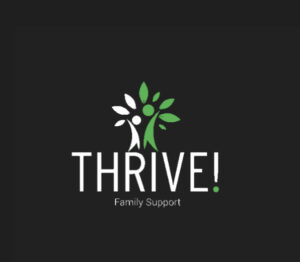
A Family in Recovery
“I will never let this happen to my family. I will be the one to break the patterns.” I remember saying those words out loud as I set out on my parenting journey. I had grown up in a family of chaos with parents that both misused alcohol. My dad died at 51, presumably from the affects of alcohol. Gratefully my mom overcame many obstacles and after working a 12 step program for years is living a full and abundant life.
Being the striver, the over-achieve and truly wanting to be a good parent I set out to learn everything I could about the “right” way to raise my children. In my mind I had this checklist. You know the one. Have family means together (check)
Take kids camping (check)
Have kids involved in youth sports (check)
Make sure they go to Sunday School and Youth Group (check)
Adapt yourself to their interests (check)
Be strong and discipline your children, but balance that with love and tenderness (check)
The joke in our family is that had we stopped with the first 2 kids we would have thought we actually had some sort of control over the outcomes that you get from parenting well. But God (as I understand him) had different ideas. I only wish that we had that much power.
Our 3rd born was just 12 when we started noticing that something was really wrong. Rebellious and strong-willed from the day he was born, things had ramped up to a whole different level once he entered middle school. By 13 his grades were slipping and we were getting “those” calls from his teachers. By 15 things had escalated to the point that money and valuables were going missing in our home. And that was the year he entered his first treatment program.
Fast forward 8 years and here we are today. Criminal justice involvement , a graduation to IV heroin use, over a dozen treatment programs later AND 16 months in recovery with the help of opioids medications our family is truly a family in recovery.
Here are just a few things that we learned along the way that have guided us in our relationship with our son and ultimately our own recovery.
- Our son was not bad, he was very ill
- Recovery looks different for everyone and we had to allow him to make his own decisions and have agency in his treatment and recovery
- While I couldn’t control my son OR his addiction, I could contribute to it by adding shame and blame. When MY behaviors changed, our relationship changed and I began to have influence.
- My responses to his behaviors mattered immensely and that is something I DID have control over
- It is actually possible to have a collaborative conversation with someone even when they are in a using episode. When I stopped using words like “you have to” “you need to” “you must” “if you would just” and started asking open-ended questions things started changing.
- Family recovery is a thing, there are multiple pathways to family recovery and I needed to get well as much as he did. For me, this was not the traditional 12 steps but I have found, through the guidance of the 8 dimensions of wellness, CRAFT and deep spiritual healing, my own holistic recovery.
- And the most important thing that I learned is that my son was worthy of being treated with honor and value in spite of his illness. And knowing that people can die from this disease, my goal became to treat him every moment of every day as if he may not be here tomorrow. I have learned to change my expectations and appreciate every single interaction I have with him knowing that I may not get a second change.
Data shows that when families are involved with their loved ones recovery and they begin their own journey of recovery, a person has a 4 times great chance at staying in recovery. What I’ve learned along this journey is that recovery is not just for the person struggling with substance use but it is for the entire family and that when we, as family members activate our recovery first, it often influences the recovery of the people around us.
The question I have gotten asked the most along this journey, is “where do you find your hope?” Aside from my faith, the answer is easy for me. It is the recovery community itself. Whenever I need to be reminded of the resilience of the human race, I only need to look at the recovery community to be assured that transformation can happen at any moment, that no one is ever too lost to get help and that today and every day (according to SAMSHA) over 4,000 people will choose recovery.